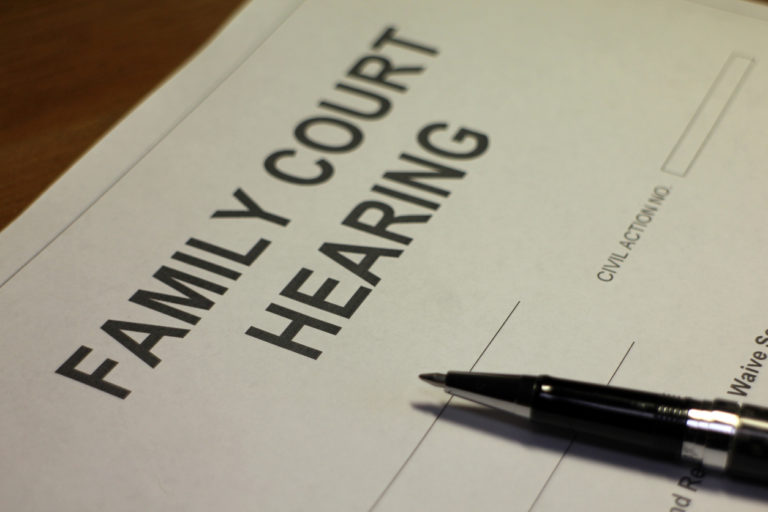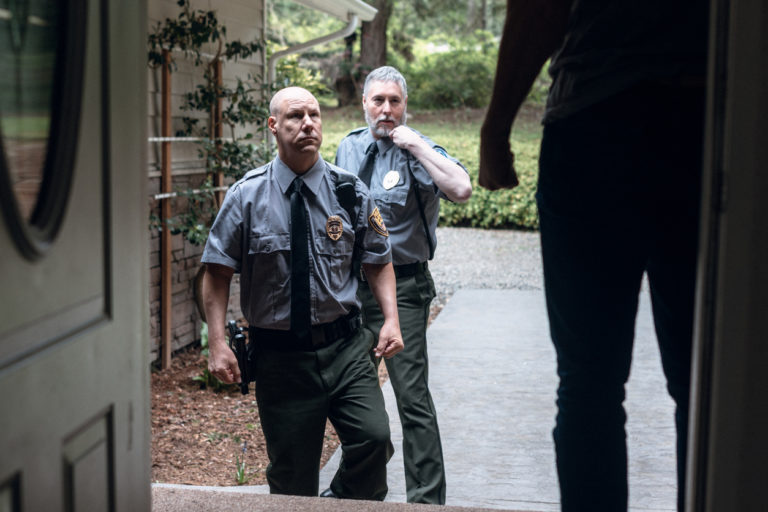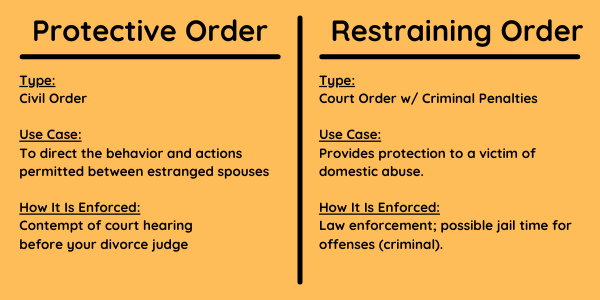Knowing the rules and regulations regarding protective orders can be complex. Many details go into obtaining and enforcing a protective order for yourself or your children. Here’s what you need to know about protective orders and your rights from our Las Vegas legal team.
At times, individuals may be legally required to keep a distance from one another—or from each other’s homes, work and school. In Nevada, a protection order may be placed for a set amount of time by a judge to ensure the safety of one or more parties.

Because there are various protection orders in Clark County, there are different sets of paperwork to fill out, depending on your situation. You can apply for a protection order against stalking, harassment, harm to minors, sexual assault and harassment in the workplace.
As per the Las Vegas Justice Court2 website, individuals must complete one or more of the following document sets, depending on their unique situation:
The application may be handwritten or typed, but it must be legible. If it’s not, the process may be delayed. Applicants must also fill out the form below, with details about themselves and the adverse party member(s). If the protection order is meant to protect more than just you, you will need to complete one of these forms for every person meant to be protected by the order:
Finally, include any police reports with your application, as well as any voice messages, videos, or other recorded media that may help with your case.
If the adverse party violated a court-ordered protective order, call the police immediately. Also, consider filing a motion to hold the adverse party in contempt of court.
As explained in NRS 33.1001, the violation for someone who disobeys a temporary protection order is a gross misdemeanor and punishable by up to 1 year in jail and up to a $2,000 fine. If the adverse party violates an extended protection order, that is a category C felony and punishable by 1-5 years in prison and up to a $10,000 fine. In this case, they will be sent to state prison.
If they are also found to be in contempt of court, they can be fined $500 and imprisoned for up to 25 days. If the contempt is criminal, they can go to jail for up to six months and be fined $1,000.

If the adverse party violated a court-ordered protective order, call the police immediately. Also, consider filing a motion to hold the adverse party in contempt of court.
As explained in NRS 33.1001, the violation for someone who disobeys a temporary protection order is a gross misdemeanor and punishable by up to 1 year in jail and up to a $2,000 fine. If the adverse party violates an extended protection order, that is a category C felony and punishable by 1-5 years in prison and up to a $10,000 fine. In this case, they will be sent to state prison.
If they are also found to be in contempt of court, they can be fined $500 and imprisoned for up to 25 days. If the contempt is criminal, they can go to jail for up to six months and be fined $1,000.

Although these terms are often used interchangeably, a restraining order and protection order are different in Nevada. A restraining order is a civil order and is used to direct how estranged spouses are permitted to behave towards each other. When a restraining order is violated during a pending divorce, the violator can be held in contempt of court.
A protection order is a court order that holds criminal penalties. It is used to protect victims of domestic abuse or other kinds of harassment and assault. Violation of a protection order is considered a criminal offense.
If you filed a domestic violence protection order in Canada then moved to the United States, you may wonder if it still applies. A Canadian domestic violence protection order is enforced in the United States, including in the State of Nevada.
If you believe you are the victim of a crime that involves domestic violence, including harassment, stalking or sexual assault, you can apply. You can also apply if you are the parent or guardian of a child and you believe the child has been the victim of a crime categorized as harmful to minors.

You must be at least 18 years old to apply. If you are not, you must have an adult apply on your behalf. Parents and guardians can apply for a protection order for their children to prevent further domestic abuse.
Once a judge approves it, the order will require the adverse party to legally stay away from your home, your school, your workplace or business, and any other locations listed by the court. It will also order the adverse party to stop calling, texting, contacting, intimidating and threatening you in any way—as well as any members of your family and household.
Finally, it will order the adverse party to legally comply with any other restrictions the court deems necessary to protect you and any other people named on the protective order.
A temporary protection order (TPO) will last no longer than thirty days. You can apply for an extension after the order expires so that you will have another new TPO against the adverse party. Otherwise, you can apply for an extended protection order (EPO).
An extended protection order (EPO) can last up to a full year. EPOs are different than TPOs because a judge will not grant an EPO unless the adverse party has had a chance to tell their side of the story.
Note: the judge does not require the adverse party to be there to grant a TPO. Therefore, it is easier to have a TPO granted.
Because of the severe implications of an EPO, you will need to make it very clear to the judge that you are in danger and require the EPO. It is especially advised you bring an attorney with you in these cases to ensure the best chances of the EPO being approved.
They can file a motion to dissolve the protection order, and the court may schedule a hearing on that motion. The adverse party must appear in court and make a case for the dissolvement of the order. You and your attorney are welcome to the court hearing as well to oppose their motion.
More likely than a plan being dismissed are cases when the adverse party applies for a protection order against the very person who initially filed a protection order against them—so don’t be surprised if this happens.
The protective order does not begin until it has been approved by a judge and SERVED to the adverse party.
Whatever you do, do NOT communicate, message, e-mail or attempt to contact the applicant or any other listed parties on the TPO. If you have been ordered to stay away from their workplace, school or other areas, stay away. You can be immediately arrested and jailed if you violate the conditions of the TPO.
To learn more about protection orders and your rights, contact our team for a free consultation today.
2Las Vegas Justice Court. Protection Order Forms. Retrieved 12 May 2021 from http://www.lasvegasjusticecourt.us/forms/document_center/protection_order_forms.php